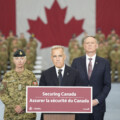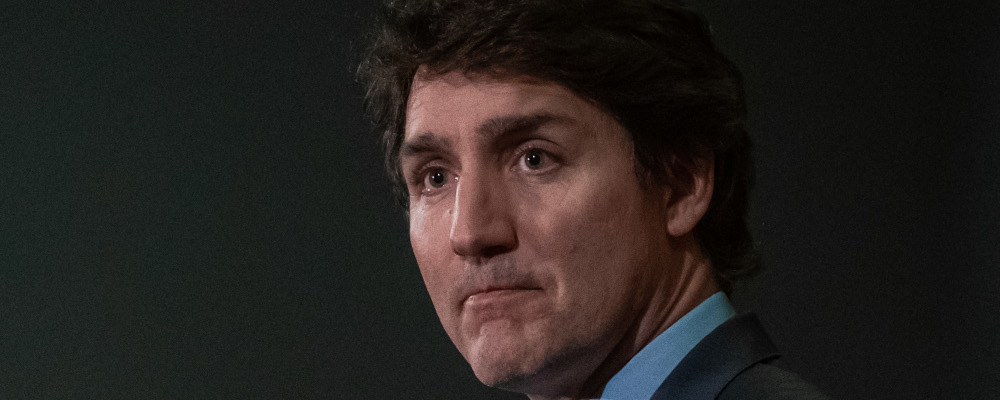This week in Hub Forum, readers participated in discussions about protecting children from porn, the rent control situation in Sweden and what it means for Canada, the Online Harms Act, the broader implications of the ArriveCan scandal, and why Canadian cities struggle under current governance structures.
The goal of Hub Forum is to bring the impressive knowledge and experience of The Hub community to the fore and to foster open dialogue and the competition of differing ideas in a respectful and productive manner. Here are some of the most interesting comments from this past week.
Sign up for our daily Hub Forum email newsletter today.

Your freedom to watch porn doesn’t trump our duty to protect children
Monday, February 26, 2024
“Rather than try to slow the flow/availability of access of the content by minors, education of the spectrum of risks may be a more effective and realistic approach. Control of access to the internet (filters, time of day, parental controls on devices) by parents is another approach. As with most things, it is likely not an either/or situation.”
— Paul Attics
“Any policy pursued needs also to balance concern for the (limited and often earned or conditional) privacy kids ought to have. There is mounting evidence that the elimination of unsupervised spaces for kids, whether online or physical, is harming their mental well-being. Giving our kids autonomy and privacy comes with risks, but risks are part of growth and learning.
Replacing helicopter parents with a helicopter regulator would eliminate the flexibility that parents might have in their approach to teaching their kids about safe and prudent smartphone and internet use. The parents who are most worried about pornography and most willing to limit their child’s privacy and access to prevent it are not the only parents whose parenting choices matter.”
— Janet Bufton
“It is very much up to parents to teach and guide and monitor their children who are using the net. Parents cannot be with their children 24/7. This is where trust comes in. If we as parents are talking with our children about such matters and modeling the values we want them to live, there is a better chance they will follow what we teach.”
— A. Chezzi
What’s wrong with rent control?
Tuesday, February 27, 2024
“It seems to me that if the federal government would limit immigration for a few years and if cities made it easier to get more built more quickly, we could build our way out of the high rent problems. It will take time, but I would rather keep the government out of the economy as much as possible and allow the marketplace to fix the issue.”
— Mike K
“I completely agree with the author. Canadian housing affordability starts and stops with the two biggest markets, Vancouver and Toronto. If we can improve affordability in those jurisdictions there will be a positive effect in other areas.”
— Zac
“Rent controls are a double-edged sword in that they can restrict supply (especially if not well-designed) but also moderate land prices. They are not the only policy tool and are not necessarily as effective as affordability policy that simultaneously targets owned housing that competes for the same land, but the idea that rent controls inherently and always choke off supply misses that land doesn’t act like other inputs.”
— Valerie

The government doubles down on censoring the internet
Wednesday, February 28, 2024
“The changes to the Criminal Code and Human Rights Act both need to be removed from this act. The rest of it is about things that are already crimes, so the duty of care approach is fine.”
— Peter Menzies
“Our threshold for criminal behaviour should be more than just writing or uttering words. Telling you I hate you is different than stating I hate you and then throwing rocks at your house or hurting you physically or creating rules that prevent you from enjoying access to due process, services, etc.”
— Coxy
The ArriveCan scandal represents an even deeper rot
Thursday, February 29, 2024
“The larger problem is lack of accountability and a process driven system. To bureaucrats, the end result is irrelevant, as long as the process is seen to work. There are also no repercussions for creating expensive disasters.”
— Kim Morton
“The common factors in many large failed projects in both the public and private sectors are a) the lack of senior executive with both the authority to approve/disapprove changes and b) a well thought out and largely unchangeable set of requirements—scope creep is a guaranteed road to failure.”
— Gordon Divitt
Canada’s cities are far too weak
Friday, March 1, 2024
“The level of government closest to the citizenry has the least amount of power—this arrangement is antiquated and obviously suboptimal. How can political power be fairly and appropriately redistributed for the rapidly changing modern, and primarily urban, world? As per the article, Section 43 offers one path, a path that does not require constitutional change. A critical national conversation, with potential regional action for facilitating ongoing prosperity, is needed.”
— Paul Attics
Recommended for You

Trevor Tombe: How is Carney going to pay for his commitments? There are some tough choices ahead

Need to Know: Legacy media has a diversity problem

‘A celebration of the spirit of Alberta’: Ryan Hastman on the political, economic, and cultural importance of the Calgary Stampede

‘Can we actually be an independent country?’: Michael Ignatieff on the 60th anniversary of Lament for a Nation



